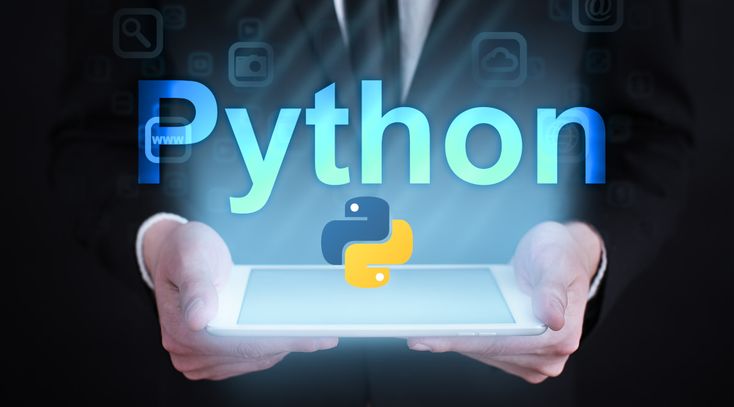Python has solidified its position as one of the most versatile and in-demand programming languages, opening doors to careers in web development, data science, machine learning, automation, and more. For those in the UK looking to learn or upskill in Python, the sheer number of training courses available can be overwhelming. This article will guide you through the key factors to consider when choosing the best python training courses uk to suit your needs and career aspirations.
1. Assess Your Current Skill Level and Define Your Learning Goals
Before diving into course options, take an honest look at your existing programming knowledge. Are you a complete beginner with no coding experience? Or do you have some programming background and want to specialize in a particular area of Python?
- Beginner: Look for courses that cover the absolute fundamentals: basic syntax, data types, control flow (loops and conditionals), functions, and simple algorithms. Many excellent “Python for Beginners” courses are available.
- Intermediate: If you have a grasp of the basics, you might want to explore topics like object-oriented programming (OOP), file handling, error management, and working with Python libraries (e.g., NumPy, Pandas).
- Advanced/Specialized: For experienced programmers, consider courses focused on specific applications like:
- Data Science & Machine Learning: Look for courses covering data manipulation, analysis, visualization (Matplotlib, Seaborn), and machine learning libraries (Scikit-learn, TensorFlow, PyTorch).
- Web Development: Seek courses that delve into Python web frameworks like Django or Flask, teaching you how to build and deploy web applications.
- Automation/Scripting: Courses focused on using Python for task automation, system administration, and scripting.
Clearly defining what you want to achieve with Python will help narrow down your choices significantly.
2. Evaluate Course Content and Structure
Once you know your goals, scrutinize the course curriculum to ensure it aligns with your objectives. A comprehensive Python course should ideally include:
- Core Python Concepts: A strong foundation in the language itself.
- Practical Applications & Projects: Hands-on experience is crucial. Look for courses that incorporate coding exercises, real-world projects, or capstone projects to apply what you learn.
- Relevant Libraries and Frameworks: Depending on your specialization, the course should cover the appropriate tools (e.g., Pandas, Django, Flask, Scikit-learn).
- Problem-Solving Skills: The course should teach you how to think like a programmer and solve problems using Python.
- Debugging and Error Handling: Essential skills for any programmer.
3. Consider the Learning Format
Python training courses come in various formats, each with its own advantages:
- Online Self-Paced Courses: Offer maximum flexibility, allowing you to learn at your own pace and schedule. Platforms like Coursera, Udemy, edX, and DataCamp are popular for this. They often include video lectures, quizzes, and coding exercises.
- Instructor-Led Online Courses: Provide a more structured learning environment with live sessions, direct feedback from instructors, and opportunities for real-time Q&A.
- In-Person Bootcamps/Workshops: Ideal for those who prefer a highly immersive and intensive learning experience. These are often offered in major UK cities like London and Manchester. They typically involve daily classes, hands-on labs, and direct interaction with instructors and peers.
- Blended Learning: A combination of online and in-person components, offering a balance of flexibility and structured support.
Think about your learning style, availability, and how much interaction and structure you prefer.
4. Research Course Providers and Reviews
The reputation of the course provider and instructor is paramount.
- Look for well-regarded institutions or platforms: Universities (like the University of Michigan’s “Python for Everybody” on Coursera), established online learning platforms, or reputable training companies.
- Read reviews from past students: Websites like Trustpilot, course review sections, and forums (e.g., Reddit’s r/learnpython) can offer valuable insights into the quality of the content, instructor effectiveness, and student support.
- Check instructor credentials: Ideally, instructors should have industry experience and a proven track record in teaching.
5. Evaluate Cost and Certification
Python courses range from free resources to expensive bootcamps.
- Free Resources: Excellent for getting started (e.g., official Python tutorial, some YouTube channels, Codecademy’s free tiers). However, they might lack structured paths or certifications.
- Paid Courses: Often offer more comprehensive content, dedicated support, and valuable certifications.
- Certifications: While not always mandatory, a recognized Python certification (like those from the Python Institute – PCEP, PCAP, PCPP) can validate your skills to potential employers and enhance your professional credibility. Consider if the certification aligns with your career goals and if it’s industry-recognized in the UK.
- Value for Money: Consider what’s included in the course fee (e.g., materials, support, projects, certification exam vouchers) and compare it against your budget.
6. Look for Practical Experience Opportunities and Career Support
Beyond just learning the syntax, practical experience is vital for mastering Python and securing a job.
- Project-Based Learning: Courses that emphasize building real-world projects are highly beneficial. A strong portfolio of projects can be more impactful than just a certificate.
- Internships or Capstone Projects: Some advanced courses or bootcamps may offer opportunities for internships or extensive capstone projects, providing invaluable real-world experience.
- Career Services/Job Placement Support: If your goal is career advancement or a career change, inquire about any career support services the training provider offers, such as resume reviews, interview preparation, or job placement assistance.
By carefully considering these factors, you can make an informed decision and choose the Python training course in the UK that best equips you for success in your programming journey.


